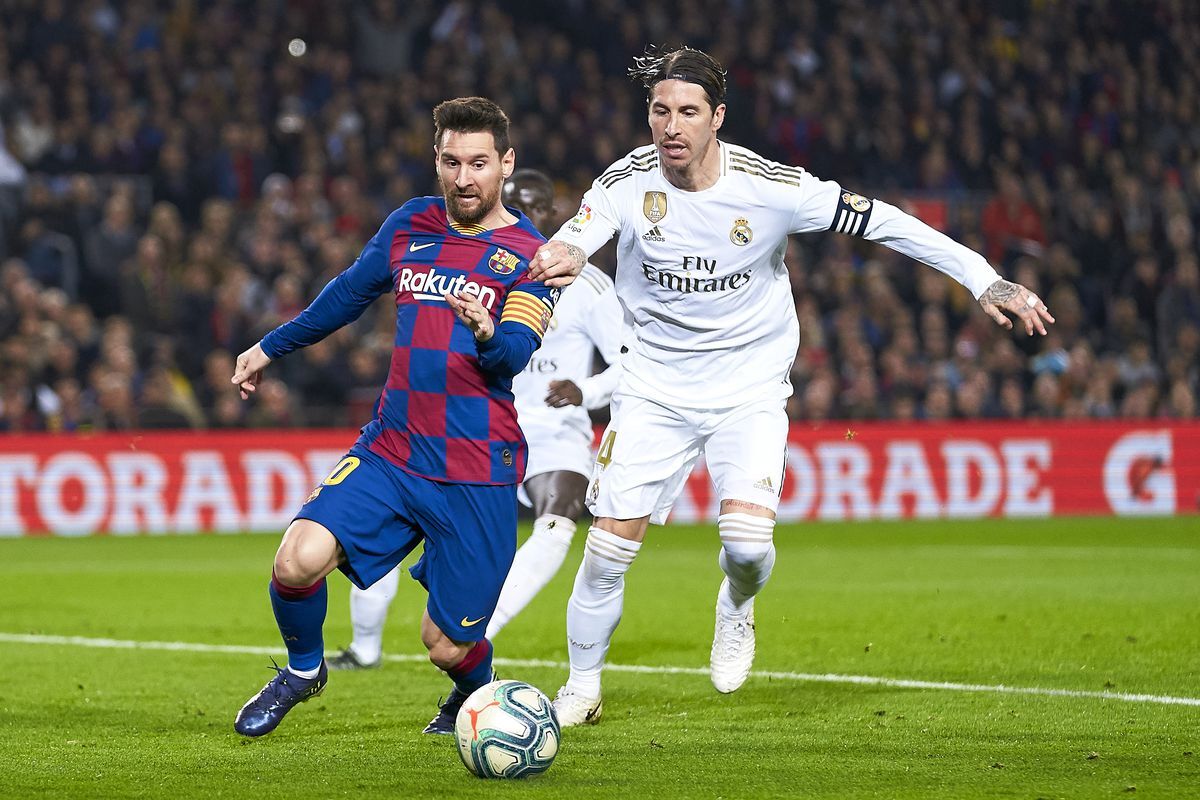Few rivalries in football history are as intense, passionate, and deeply ingrained in the culture of the sport as El Clasico, the legendary clash between FC Barcelona and Real Madrid CF. This iconic fixture goes far beyond just football; it represents decades of history, cultural significance, and fierce competition. Let’s dive into the origins of El Clasico and explore how this match-up became one of the most anticipated events in the sporting world.
The Historical Roots of El Clasico
The birth of El Clasico can be traced back to the early 20th century. The rivalry was not initially about football—it was about the political and cultural tensions between Catalonia (Barcelona) and Castile (Real Madrid).
The Catalan Pride vs. Spanish Nationalism
Barcelona, representing Catalan pride, has long been seen as a symbol of defiance against Spanish centralism. The club’s identity has always been intertwined with the political struggle for independence and the preservation of Catalan culture. On the other hand, Real Madrid was historically associated with the Spanish monarchy and central government. This contrast in political ideologies formed the backbone of the rivalry, making the matches between these two clubs a battle not only on the pitch but also for cultural and national pride.
The First Encounter: 1902 Copa del Rey
The first official encounter between Barcelona and Real Madrid took place in the 1902 Copa del Rey (Spanish Cup). At that time, the club names were not as globally recognized as they are now, but the seeds of this historic rivalry were planted during that game.
In that initial clash, Barcelona emerged victorious, winning 3-1. This was just the beginning of what would become a fierce rivalry that would only grow over the years. As both teams began to dominate Spanish football, the anticipation surrounding their matches escalated.
The Role of the Franco Era
One of the most pivotal moments in the history of El Clasico came during the regime of Spanish dictator Francisco Franco. Under Franco’s rule (1939-1975), Real Madrid was favored by the government, while Barcelona, due to its association with Catalan independence, was often persecuted. This political favoritism added another layer of intensity to the rivalry, with Barcelona’s struggles under Franco only fueling the animosity towards Real Madrid.
Real Madrid’s dominance during this era, winning numerous domestic and international titles, further embittered the relationship between the two clubs. For Barcelona, every victory against Madrid became a symbol of resistance and pride.
The Modern Era: Rivalry Reaches Global Heights
As El Clasico evolved, so did the stakes. By the 1990s and 2000s, both clubs had become global powerhouses, attracting talent from all corners of the world. The rivalry reached new heights, particularly with the presence of iconic players such as Lionel Messi for Barcelona and Cristiano Ronaldo for Real Madrid. These two legends elevated the rivalry, ensuring that El Clasico became more than just a match—it became a global spectacle watched by millions.
The matches between the two teams became increasingly unpredictable, with both clubs trading victories in dramatic fashion. The fierce competition continued, with Barcelona enjoying significant successes, such as winning the 2009 UEFA Champions League under Pep Guardiola, while Real Madrid maintained its global stature, securing La Decima (10th European Cup) in 2014.
Memorable Moments in El Clasico History
El Clasico has witnessed some of the most unforgettable moments in football. Here are a few of the iconic instances that have etched themselves into the history of this rivalry:
- The 5-0 Victory (2010): Under Pep Guardiola, Barcelona delivered one of the most resounding victories in El Clasico history, defeating Real Madrid 5-0 at the Camp Nou. The performance was a testament to Barcelona’s dominance during that period.
- Cristiano Ronaldo’s Hat-Trick (2014): Ronaldo’s sensational hat-trick in a 3-4 victory for Real Madrid at the Santiago Bernabeu further solidified his status as one of the greatest players to ever play in El Clasico.
- Messi’s Last-Minute Winner (2017): Lionel Messi scored a dramatic last-minute goal at the Santiago Bernabeu, securing a 3-2 win for Barcelona in one of the most thrilling encounters between the two giants.
These moments are just a few examples of how El Clasico has captivated football fans worldwide, with its mixture of high stakes, incredible drama, and star performances.
Why El Clasico Is More Than Just a Football Match
El Clasico is more than just a contest between two football clubs; it’s a battle for identity, pride, and legacy. The rivalry is symbolic of the wider cultural and political tensions that exist between Catalonia and the rest of Spain. For Barcelona and Real Madrid, this match is a matter of honor, and for their fans, it’s an event that brings together generations of supporters.
Whether it’s for the titles at stake, the pride of their cities, or the incredible talent on display, El Clasico never fails to deliver.
Support Your Team on Wicket 71
If you’re a passionate fan of either Barcelona or Real Madrid, you can show your support for your team during El Clasico and beyond through Wicket 71. The site offers a platform for fans to stay updated, connect with fellow supporters, and celebrate the rich history of this incredible rivalry.
Join the global community of El Clasico fans and cheer for your team today! Visit Wicket 71 to experience the excitement firsthand.
